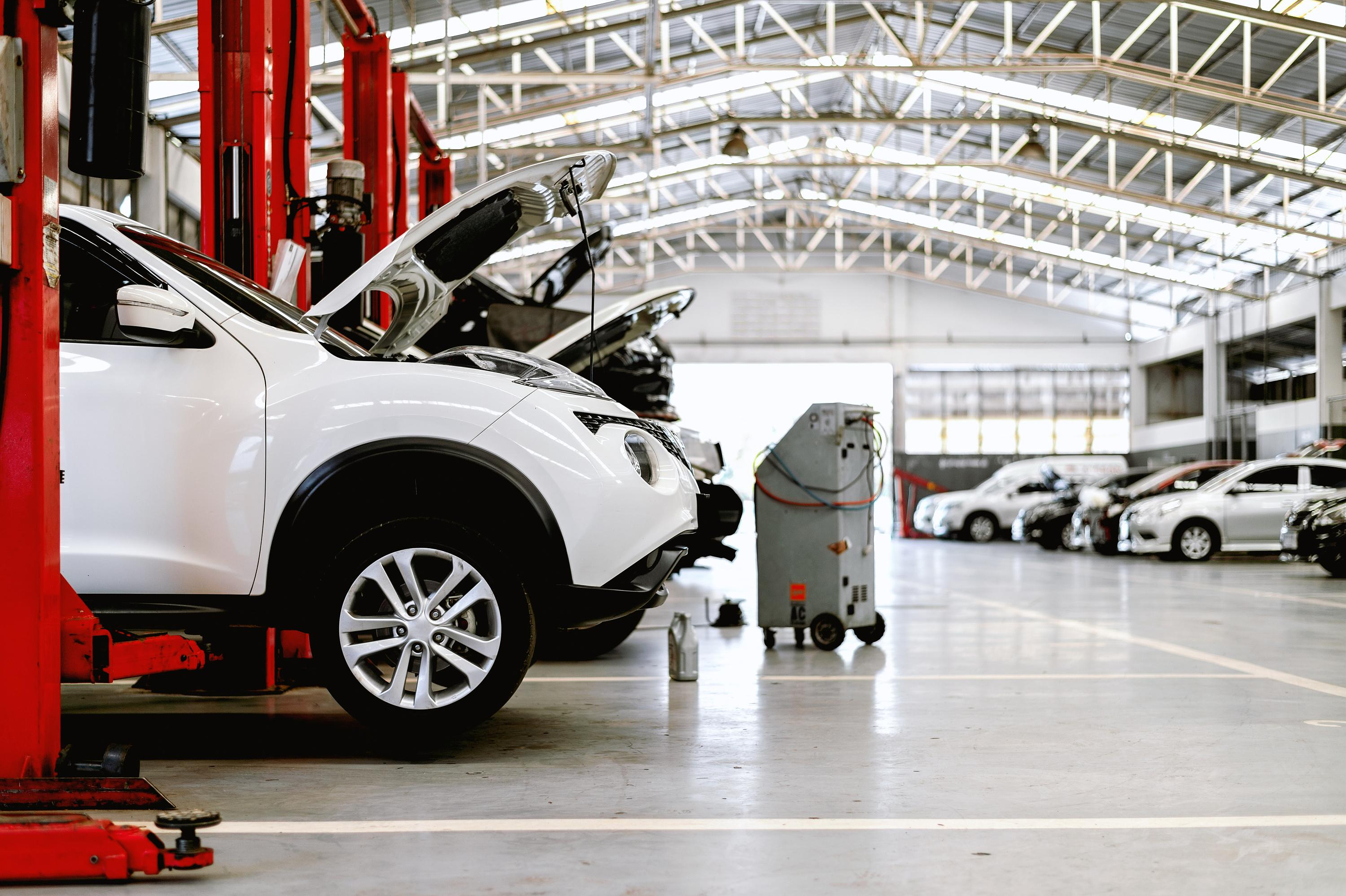“The road to “fast fashion” in the automotive sector is open.” This is the cry of alarm launched by the association “Stop planned obsolescence” (HOP) in a report on obsolescence in the automobile, published this Wednesday, which warns of the risk “of seeing “disposable cars””.
On the one hand, the association created in 2015 points to “the regulatory obsolescence of still functional thermal cars”, caused by public policies such as low emission zones (ZFE), the planned end of the circulation of thermal vehicles in 2050 or even the ecological bonus-malus. In the case of ZFEs, this policy “represents a risk of exclusion of certain populations, and presupposes a change of motorization for many residents and workers in ZFEs”, notes the association, which calls for “taking an interest in the end of life of these vehicles, rendered legally obsolete.
Beyond the regulatory aspect, HOP questions the lifespan of current vehicles. While the current economic model for purchasing and maintaining automobiles is well-oiled, guaranteeing a “long, healthy life” for many vehicles, the association says it “doubts the capacity of vehicles modern thermal and electric vehicles to last 19 years, like the current average, and more. In the electrical department, HOP questions the long-term reliability of batteries and their repairability. Some turn out to be assembled in such a way that they cannot be dismantled: hence the risk of de facto “disposable batteries” when these represent “between 30 and 40% of the value of the vehicle”.
Also read These new factories that recondition cars
Another trend that worries HOP: the production of new models in factories using very large castings instead of assembling dozens of sheets. A practice called “giga-casting”. Sources of savings and lightness for manufacturers, these parts can turn into a nightmare for insurers and policyholders: "At the slightest shock, it will be necessary to replace such an important part of the car that it will probably be more profitable to scrapped in the event of an impact,” fears the association, which “denounces the consequences of this practice initiated by Tesla and BYD, gradually taken up by other manufacturers.”
Finally, HOP points out the risks inherent in the increasing electronicization of cars. The association, which obtained at the end of 2022 the opening of an investigation by the Paris prosecutor's office against Apple for having made it difficult to repair its smartphones with generic parts, argues that the same problem arises in current vehicles equipped with of electronic chips refusing “grafts” of parts not assembled in the factory. HOP also mentions the risk of software obsolescence of very highly digitalized vehicles.
Thus, faced with these limits, potentially costly for the consumer and harmful to the environment, the association calls on public authorities to take strong measures. “If we do nothing now, it will be the advent of the “fast fashion” of disposable vehicles!”, warns Laetitia Vasseur, general delegate and co-founder of HOP, quoted in a press release. HOP is therefore calling for the establishment of a “repairability index” for vehicles. She would also like the creation of “standards for durability and reparability of batteries in Europe”, or even a ten-year guarantee for accumulators, as well as the removal of obstacles to the use of reused parts. Less than two months before the European elections, HOP has also launched a petition to put pressure on the candidates and push them to make commitments on this subject.

 Russia: schools will train children to use drones at the start of the school year
Russia: schools will train children to use drones at the start of the school year Austria: incestuous torturer Josef Fritzl, nicknamed the “national monster”, could soon be released
Austria: incestuous torturer Josef Fritzl, nicknamed the “national monster”, could soon be released An airline continues to treat a centenarian as a one-year-old baby
An airline continues to treat a centenarian as a one-year-old baby Germany: the trial of nine “Citizens of the Reich” conspirators begins this Monday
Germany: the trial of nine “Citizens of the Reich” conspirators begins this Monday Sánchez cancels his agenda and considers resigning: "I need to stop and reflect"
Sánchez cancels his agenda and considers resigning: "I need to stop and reflect" The Federal Committee of the PSOE interrupts the event to take to the streets with the militants
The Federal Committee of the PSOE interrupts the event to take to the streets with the militants Repsol: "We want to lead generative AI to guarantee its benefits and avoid risks"
Repsol: "We want to lead generative AI to guarantee its benefits and avoid risks" Osteoarthritis: an innovation to improve its management
Osteoarthritis: an innovation to improve its management Sanofi: demonstration in front of Paris headquarters against job cuts
Sanofi: demonstration in front of Paris headquarters against job cuts The Chinese car manufacturer BYD sets out to conquer France
The Chinese car manufacturer BYD sets out to conquer France Public finances: after the deputies, Bruno Le Maire asks the senators for savings avenues
Public finances: after the deputies, Bruno Le Maire asks the senators for savings avenues Faced with opposition from London, a fund supported by Abu Dhabi abandons the purchase of the Daily Telegraph
Faced with opposition from London, a fund supported by Abu Dhabi abandons the purchase of the Daily Telegraph Omar Sy on all cultural fronts
Omar Sy on all cultural fronts Jacques Audiard, Swann Arlaud, Benjamin Stora... A hundred men from cinema, theater and books in support of
Jacques Audiard, Swann Arlaud, Benjamin Stora... A hundred men from cinema, theater and books in support of Resale, scams and fake tickets: how not to get scammed before Taylor Swift concerts
Resale, scams and fake tickets: how not to get scammed before Taylor Swift concerts Isild Le Besco is not ready to file a complaint against Benoît Jacquot
Isild Le Besco is not ready to file a complaint against Benoît Jacquot Omoda 7, another Chinese car that could be manufactured in Spain
Omoda 7, another Chinese car that could be manufactured in Spain BYD chooses CA Auto Bank as financial partner in Spain
BYD chooses CA Auto Bank as financial partner in Spain Tesla and Baidu sign key agreement to boost development of autonomous driving
Tesla and Baidu sign key agreement to boost development of autonomous driving Skoda Kodiaq 2024: a 'beast' plug-in hybrid SUV
Skoda Kodiaq 2024: a 'beast' plug-in hybrid SUV The home mortgage firm rises 3.8% in February and the average interest moderates to 3.33%
The home mortgage firm rises 3.8% in February and the average interest moderates to 3.33% This is how housing prices have changed in Spain in the last decade
This is how housing prices have changed in Spain in the last decade The home mortgage firm drops 10% in January and interest soars to 3.46%
The home mortgage firm drops 10% in January and interest soars to 3.46% The jewel of the Rocío de Nagüeles urbanization: a dream villa in Marbella
The jewel of the Rocío de Nagüeles urbanization: a dream villa in Marbella Europeans: a senior official on the National Rally list
Europeans: a senior official on the National Rally list Blockade of Sciences Po: the right denounces a “drift”, the government charges the rebels
Blockade of Sciences Po: the right denounces a “drift”, the government charges the rebels Even on a mission for NATO, the Charles-de-Gaulle remains under French control, Lecornu responds to Mélenchon
Even on a mission for NATO, the Charles-de-Gaulle remains under French control, Lecornu responds to Mélenchon “Deadly Europe”, “economic decline”, immigration… What to remember from Emmanuel Macron’s speech at the Sorbonne
“Deadly Europe”, “economic decline”, immigration… What to remember from Emmanuel Macron’s speech at the Sorbonne These French cities that will boycott the World Cup in Qatar
These French cities that will boycott the World Cup in Qatar Football: the CAS suspends the sanction of Gabigol who will be able to play again
Football: the CAS suspends the sanction of Gabigol who will be able to play again Wrestling: everything you need to know about the sport
Wrestling: everything you need to know about the sport Luis Enrique before Dortmund-PSG: “We must not see pressure as a threat”
Luis Enrique before Dortmund-PSG: “We must not see pressure as a threat” Tennis: the astonishing ploy of Medvedev’s coach to avoid being filmed in his box
Tennis: the astonishing ploy of Medvedev’s coach to avoid being filmed in his box

















